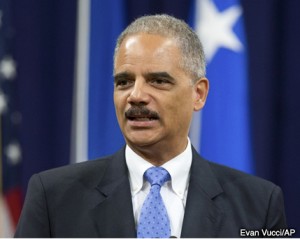Where’s this pressure to open another theater of war coming from?
Who would actually benefit besides those in our government bought off by defense contractor lobbyists?
 Americans like me aren’t indifferent to innocent men, women, and children being killed with chemical agents, but we’ve grown increasingly wary of the distractive properties of a constant, multi-front war. After all, between the money spent on the aforementioned contractors and the banks backing them, America itself has been ransacked and destabilized. And who’s looking out for us while we go acting abroad on behalf of others? In fact, how can the United States authentically serve as peacekeeper, lead by example, or stand up for the little guy if we’re too busy forcing this world police thing down everyone’s throats — including those of our own majority? The credibility of American might (and ethical standards) exists not because our elected leaders keep insisting on it, but because we’ve won a few; because we’ve overcome some. But now America’s foreign policy feels like we’re still pulling the trigger, but the chamber is empty.
Americans like me aren’t indifferent to innocent men, women, and children being killed with chemical agents, but we’ve grown increasingly wary of the distractive properties of a constant, multi-front war. After all, between the money spent on the aforementioned contractors and the banks backing them, America itself has been ransacked and destabilized. And who’s looking out for us while we go acting abroad on behalf of others? In fact, how can the United States authentically serve as peacekeeper, lead by example, or stand up for the little guy if we’re too busy forcing this world police thing down everyone’s throats — including those of our own majority? The credibility of American might (and ethical standards) exists not because our elected leaders keep insisting on it, but because we’ve won a few; because we’ve overcome some. But now America’s foreign policy feels like we’re still pulling the trigger, but the chamber is empty.
President Obama feels strongly that America needs to “send a message” to brutes like Bashar al-Assad. Yet if we target and destroy Assad’s chemical weapons stockpiles in a “limited” and “narrow” attack that in no way demands regime change, won’t the message be: Use chemical weapons and we’ll shoot some missiles at your bunkers but not remove you from power? This kind of shock and awe sounds more like shove ‘n shoo.
If, on the other hand, Obama & Co. stick to humanitarian aid –terrible as that may seem– might we instead finally send the message that America won’t be baited into intervention? Won’t it signify our intention to start holding our cards closer to our chest? Might that not help us be taken even more seriously in the long term?
Fine. But isn’t it smarter to avoid military engagement with Syrian Opposition Forces made up of jihadists and fighters about whom we know so little? Before you answer that, scroll down this long list of those groups who make up the opposition.
One last question: Does America represent the power of unilaterally exercised principles, or the principles of unilaterally exercised power?




